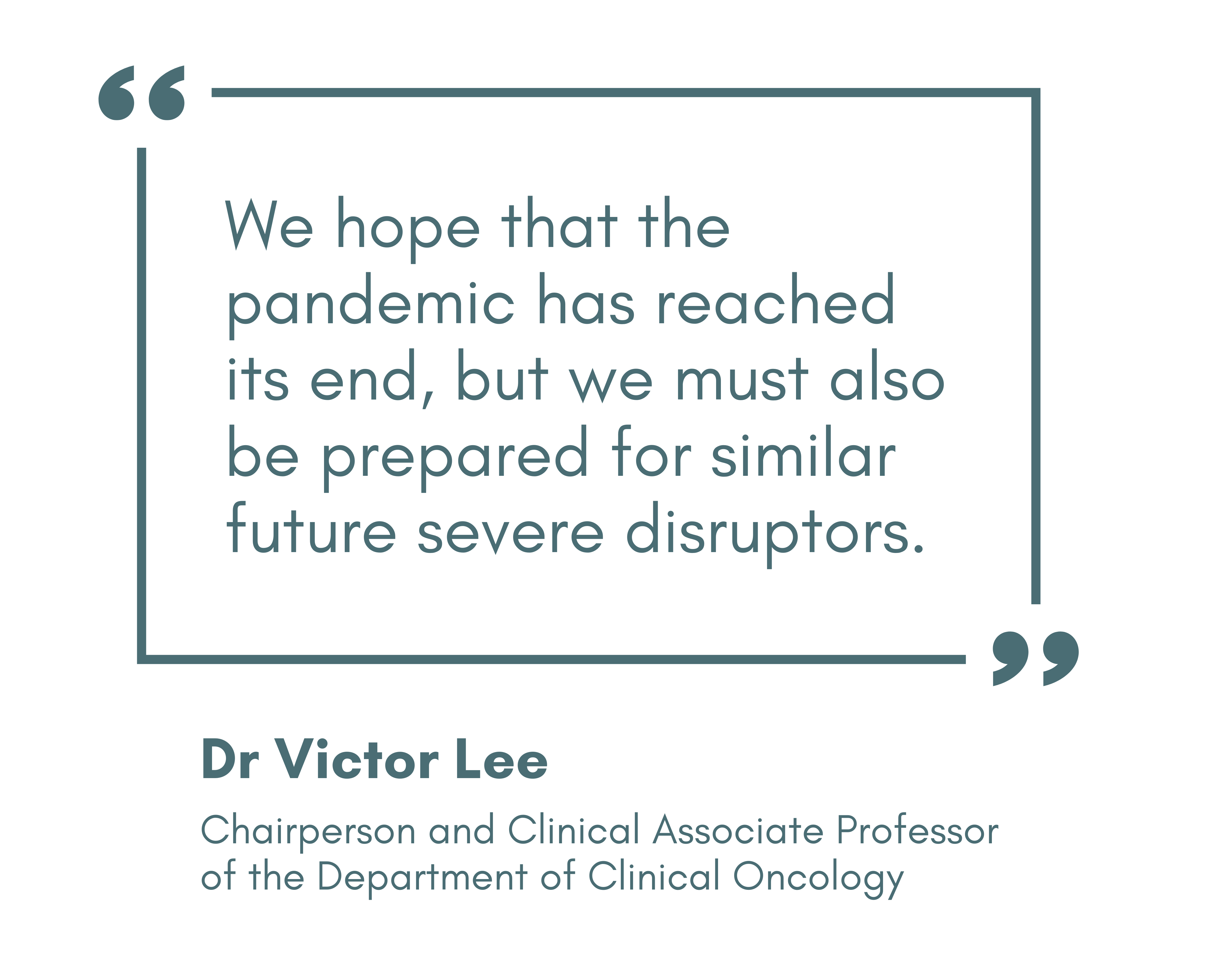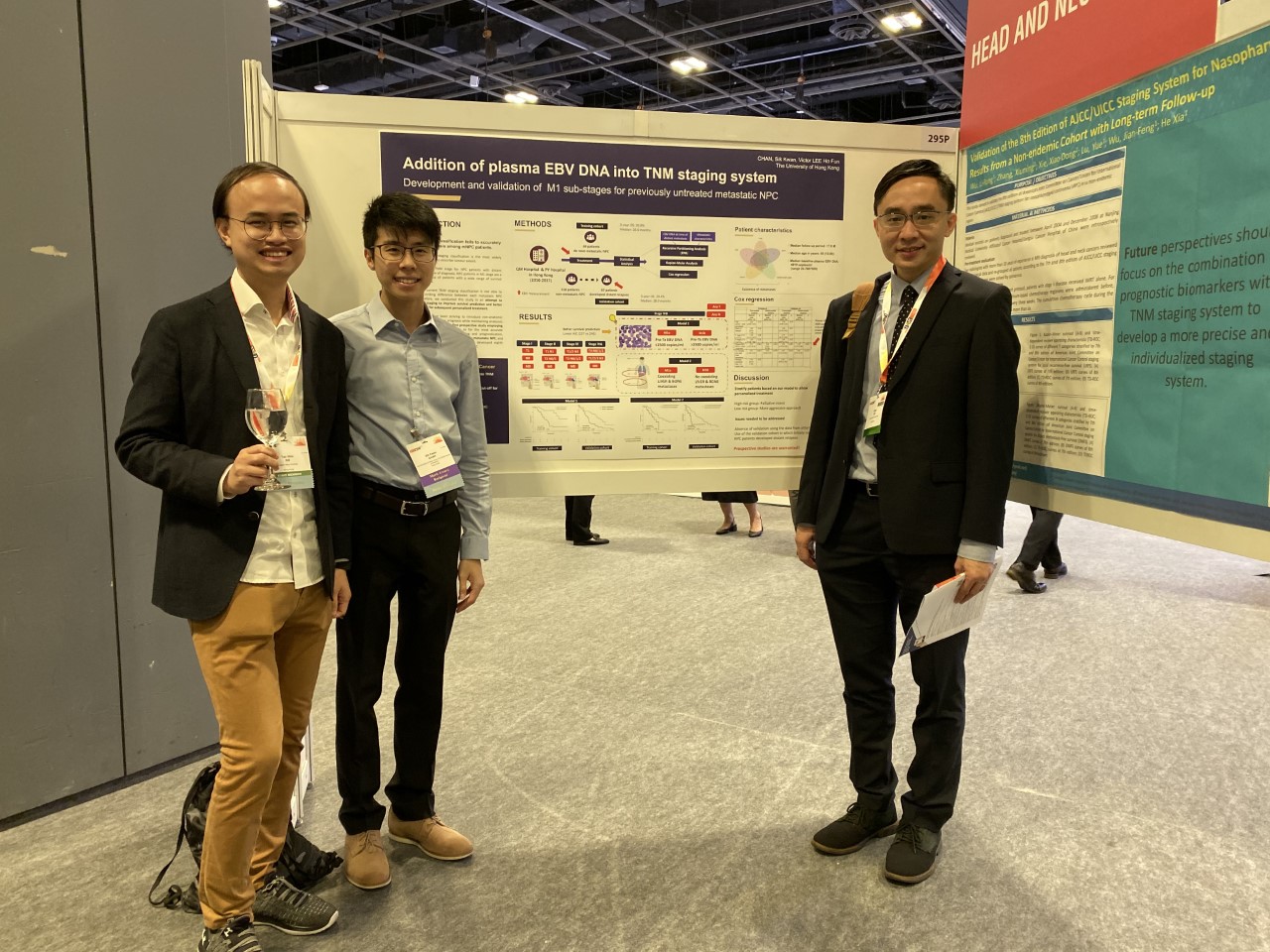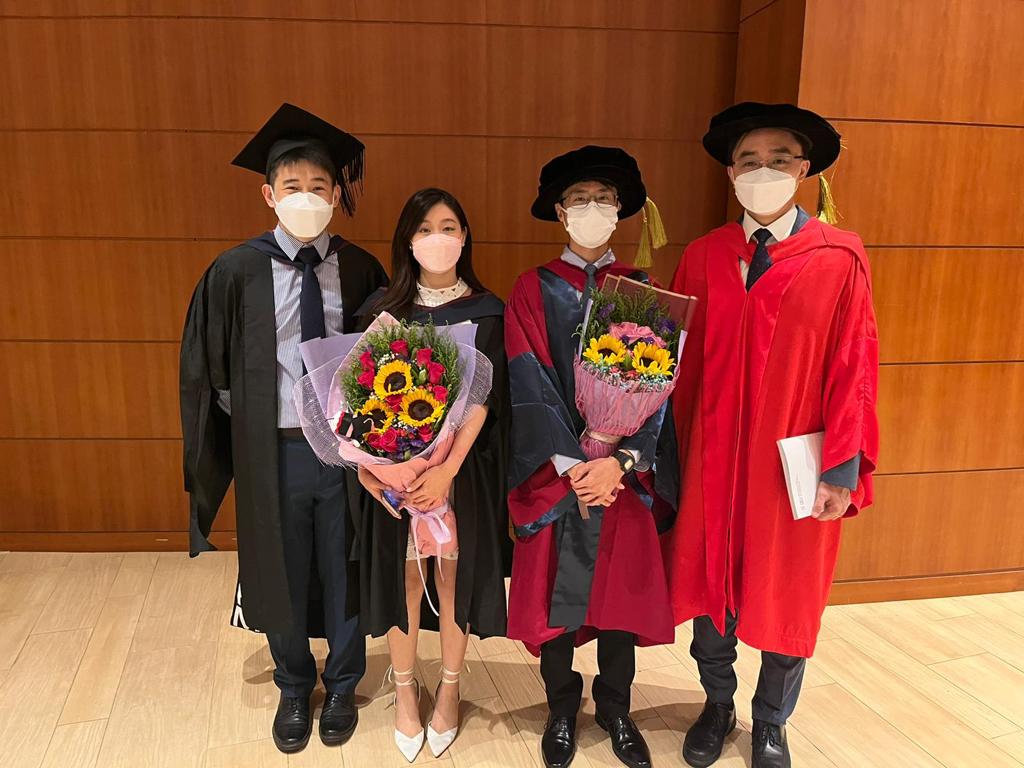

{{'Newsletter' | t}}
Medical Scholars Identify Predictive Factors of Slow COVID-19 Recovery by Machine Learning
Omicron variants have caused a raging pandemic worldwide. Dr Kenneth Sik-Kwan Chan, a 2022 graduate of HKU’s Department of Clinical Oncology, Li Ka Shing Faculty of Medicine, and his supervisor, Dr Victor Ho-Fun Lee, Chairperson and Clinical Associate Professor of the Department of Clinical Oncology, have found predictors of delayed viral clearance from COVID-19 in patients with cancer that may benefit from targeted interventions.
Identifying the predictive factors of delayed viral clearance of asymptomatic omicron-related COVID-19 in cancer patients receiving active anti-cancer treatment is imperative, given their higher hospitalisation and mortality rate compared with the general population. A retrospective and prospective study by the Department of Clinical Oncology identified significant predictors of delayed viral clearance—aged 65 years or above, male, multiple medical comorbidities, lung cancer, receipt of immune checkpoint inhibitor, and receipt of 1 dose of COVID-19 vaccine or fewer—in 200 COVID-19 positive cancer patients, out of 1,309 consecutive patients who saved 6,854 deep throat saliva or nasal swab samples during their scheduled visits to Queen Mary Hospital from January and April 2022, when Hong Kong was heavily hit by the omicron variants. The prediction performance of these predictors was further verified and confirmed by AI machine learning algorithms. This work has recently been published in the International Journal of Infectious Disease, one of the most prestigious journals in the field.

“We hope that the pandemic has reached its end, but we must also be prepared for similar future severe disruptors,” said the principal investigator Dr Lee. He suggested that a complete vaccination programme and schedule should be prioritised and promulgated to cancer patients, particularly high-risk subgroups, so that their anti-cancer treatment will be less interrupted and compromised. Early initiation of anti-viral therapy should be contemplated for infected patients who have not completed COVID-19 vaccination.
Dr Chan, Dr Lee’s PhD student and a core member in this study, attributed the work to the enormous efforts of a multidisciplinary team. “The team comprised clinical oncologists, microbiologists, medical physicists, statisticians and public health experts, working collaboratively towards a common goal and sharing their expertise in decision-making processes,” Dr Chan said. He mentioned that it was an excellent chance to learn from the team through extensive communications and brainstorming sessions to come up with the optimal solutions.
Dr Chan recalled the wonderful opportunities gained during his PhD study between 2019 and 2022 and his experience of various research methodologies in clinical oncology, epidemiology and health economics. He expressed his gratitude for Dr Lee’s tremendous support throughout his study, and he also praised HKU as the perfect platform to connect with other students and colleagues around the world. His own experience was with the dynamic partnership in a multidisciplinary team of medical professionals, engineers, developers and designers in the Medtech Hackathon, co-organised by HKU, Stanford University and Hong Kong Science and Technology Parks Corporation to tackle unmet needs in healthcare delivery. With numerous publications and scholarships under his belt, Dr Chan is enthusiastic about turning abstract ideas into real practice and even a social product with much greater social impact for the community.
Dr Chan is currently a postdoctoral fellow in HKU’s School of Nursing. In addition to tobacco control policies, he is now heavily involved in epidemiological studies of various types of cancers in patients with a smoking history and identifying the personal and behavioural changes of smoking patterns in patients after diagnosis of cancer. He is developing an innovative smoking cessation model for smokers with nasopharyngeal carcinoma, in collaboration with Dr Lee. They hope to bridge the gap between academic research and clinical practice for the sake of knowledge exchange.

Dr Lee (right) and Dr Chan (middle) at the ESMO Asia 2019 Congress in Singapore

Dr Lee (right) and Dr Chan (2nd from right), who was conferred his PhD degree at the HKU Congregation Ceremony in June 2022
